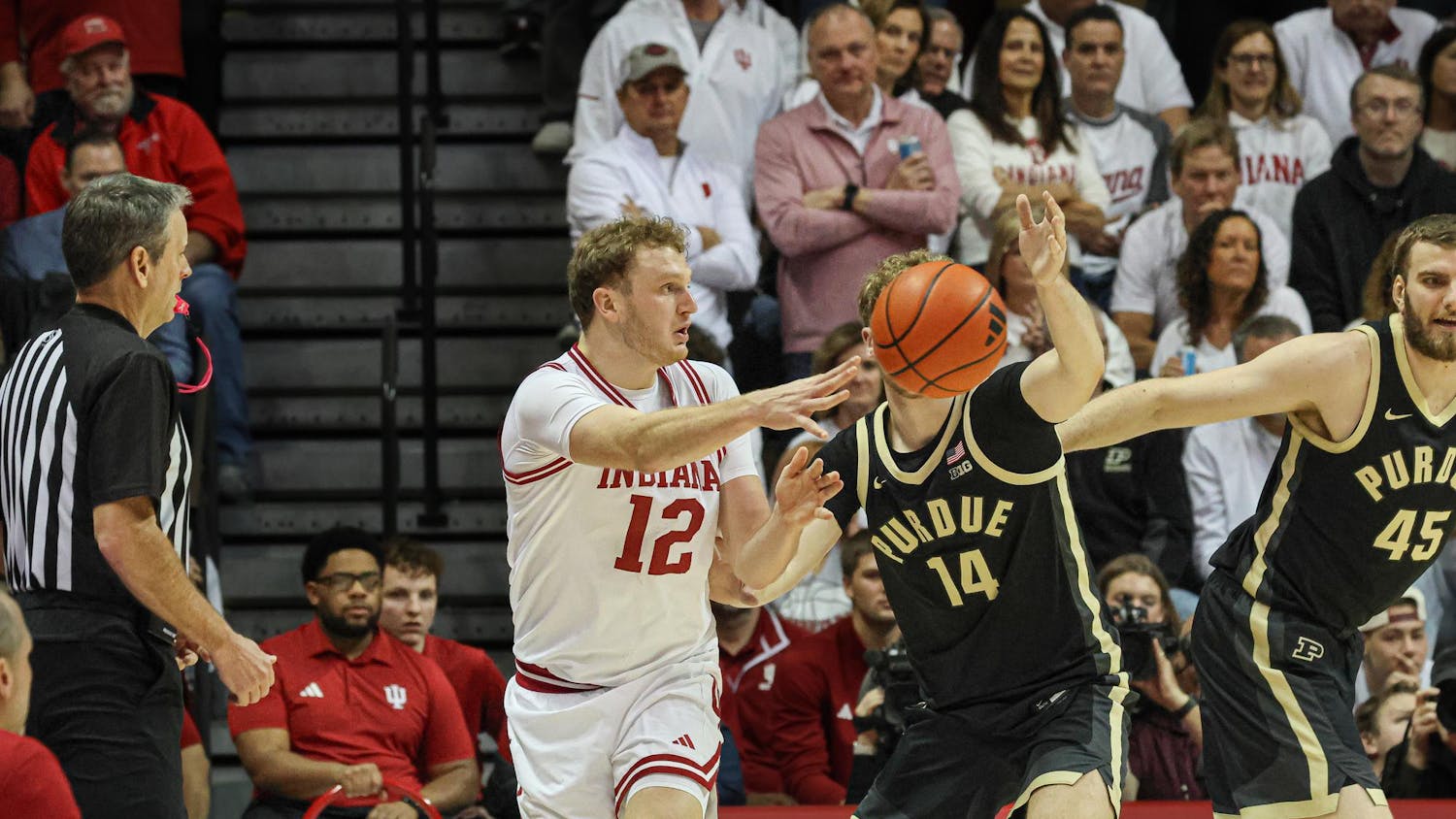We’ve all been taught, one way or another, about the stereotype of a “dumb jock.”
For college athletes, our minds flash to a caricature of a football player, one who sees himself as larger than life.
We think of a player who frequently skips class, parties hard and signs up for the
easiest major.
We think of someone with a full ride to a major university, yet makes a mockery of the educational system.
In an attempt to shatter the stereotype, the NCAA has launched an ad campaign boasting that the number of NCAA student-athletes earning degrees is at an all-time high.
At the end of one commercial, a female student-athlete asks, “Still think we’re a bunch of dumb jocks?”
I have never subscribed to the blanket generalization that student-athletes are inherently dumber than the average student.
The issue at hand has little to do with student-athletes’ intelligence and much more to do with the quality of education they receive.
Yes, it’s a positive thing overall that more and more student-athletes are earning degrees. It’s undeniably better for students, athletes or otherwise, to leave school with a degree rather than without one.
But far too many student-athletes exit college without an employable skill set or having learned much from class.
Too many student-athletes are victims of a system that encourages an ever-increasing commitment to sports and discounts the value of an education.
Too many student-athletes graduate ill prepared for life after college.
Too many student-athletes go through college being pressured to take the easiest classes in order to maintain the minimum GPA for playing eligibility.
I would like to think the the main objective of the NCAA’s ad campaign is in fact to shatter the “dumb jock” stereotype.
It’s not.
For college athletic programs, and the NCAA as a whole, the name of the game is maintaining eligibility and graduation rates to keep the revenue flowing.
It doesn’t matter how those numbers improve, just as long as they do.
But the numbers have to be put into context.
The NCAA penalizes athletic departments that don’t graduate a certain number of student-athletes or keep a certain number of student-athletes academically eligible, usually by taking away scholarships or imposing a postseason ban.
Sadly, these rules have backfired.
Ken Armstrong is the co-author of “Scoreboard, Baby,” a book that chronicles the University of Washington football program’s gross prioritization of winning over academics and the character of its athletes.
“The NCAA puts a lot of value on graduation rates, an easy stat to manipulate without making sure students get a meaningful education,” Armstrong said.
Student-athletes, particularly those in the highest-profile sports of football and basketball, are encouraged to cluster into the same major with the easiest requirements, regardless of how it fits the individual.
Athletic departments want to win. If that means steering student-athletes toward “easy” majors, then so be it.
A USA Today survey found that 83 percent of the schools studied (118 of 142) had at least one team in which at least 25 percent of the juniors and seniors majored in the same thing. For example, seven of the 19 players on Stanford’s baseball team majored in sociology.
Former Boise State University safety Marty Tadman was among the 48 percent of the football team’s juniors and seniors majoring in communications during the 2007-08 academic year.
“You hear which majors, and which classes, are the easiest and you take them,” Tadman told USA Today. “You’re going to school so you can stay in sports. You’re not going for a degree. ... It’s a joke.”
Student-athletes are not dumb jocks. They are exploited jocks.
They are the victims of a deeply flawed system that worries about composite numbers more than the people that compose those numbers.
It pains the sports fan in me to say this, but cut athletic schedules. Cut travel. Align conferences based on geography, not money. Figure out a way to give student-athletes more time in the classroom.
It may sound idealistic, and admittedly, it is. But we owe it to these student-athletes to make sure they get a meaningful education.
We will all be “going pro” in something after college. Just remember that the vast majority of student-athletes won’t go pro in their sport.
— jpopely@indiana.edu
Exploited, not dumb
Get stories like this in your inbox
Subscribe





